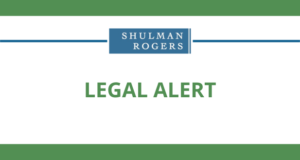
New Federal Tax Deductions for Tips and Overtime
On July 4, 2025, H.R. 1, a/k/a the “One Big Beautiful Bill Act” (“Act”), was signed into law, introducing significant changes to the federal tax treatment of tip income and overtime compensation. The Act establishes two new temporary above-the-line tax deductions, effective through the 2028 tax year, with important implications for both employers and employees. While formal regulatory guidance is pending, employers should begin preparing for new compliance and reporting obligations.
Key Provisions
Federal Deduction for Qualified Tip Income
- The Act creates a deduction of up to $25,000 for “qualified tip income,” which phases out for individuals with modified adjusted gross income above $150,000 ($300,000 for joint filers).
- “Qualified tips” are defined as cash tips received in occupations that customarily and regularly received tips as of December 31, 2024. The IRS is required to publish a list of qualifying occupations by October 2, 2025.
- Deductible tips include cash and charged tips, as well as tips received through tip-sharing arrangements, but exclude mandatory service charges or automatic gratuities.
- Employers must provide a separate accounting of cash tips and state the worker’s occupation on Forms W-2 or 1099. Accurate recordkeeping is essential, particularly for employees with dual roles.
Federal Deduction for Qualified Overtime Compensation
- The Act establishes a deduction of up to $12,500 ($25,000 for joint filers) for “qualified overtime compensation,” with the same income phase-out thresholds as the tip deduction.
- “Qualified overtime compensation” refers to the premium portion (the “half” in “time and a half”) of overtime pay required under the Fair Labor Standards Act (FLSA). Only overtime required by federal law is eligible; overtime required solely by state law or collective bargaining agreements does not qualify.
- Employers must report qualified overtime compensation as a separate line item on Forms W-2.
Reporting and Compliance Considerations
- For tax year 2025, the IRS will provide transition relief, allowing employers to approximate separate accounting of tips and overtime by any reasonable method specified by the Secretary of the Treasury.
- Both tips and overtime wages remain subject to Social Security and Medicare taxes.
- Employers should anticipate increased employee interest in tipped and overtime work due to the new tax advantages, which may impact payroll costs and reporting practices.
- Employers must develop or update systems to accurately track and report cash tips and qualified overtime compensation.
- Ongoing education for both employers and employees regarding the new deductions is recommended, as is close attention to forthcoming IRS guidance.
Conclusion
The Act’s new tax deductions for tip income and overtime compensation present both opportunities and compliance challenges for employers. Proactive review of payroll practices, recordkeeping systems, and employee communications is advised as the IRS prepares to issue further guidance. Employers should remain vigilant and adapt their practices to ensure compliance with the evolving regulatory landscape.
